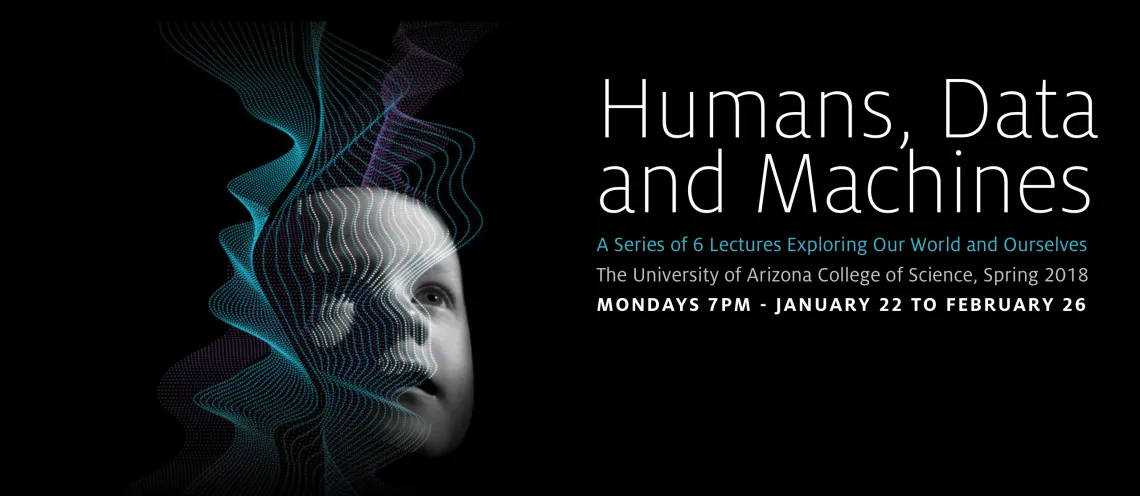Professors Kobourov and Surdeanu Contribute to Lecture Series
Humans, Data, and Machines

From the lecture site:
In our automated lives, we generate and interact with unprecedented amounts of data. This sea of information is constantly searched, catalogued, analyzed and referenced by machines with the ability to uncover patterns unseen by their human creators. These new insights have far reaching implications for our society. From our everyday presence online, to scientists sequencing billions of genes or cataloging billions of stars, to cars that drive themselves – this series of six lectures will explore how the confluence of humans, data and machines extends beyond science – raising new philosophical and ethical questions.
Dr. Stephen Kobourov - Presented January 22, 2018 Problem Solving with Algorithms: The idea of computation and algorithms is old, but modern day computers are a relatively new phenomenon. Even more recent are the notions of artificial intelligence (AI), machine learning (ML) and big data. While it is difficult to clearly define AI and ML it is evident that progress in these fields, combined with access to large datasets, has a significant impact on all aspects of our lives. This raises new mathematical and engineering challenges – can we solve previously unsolvable problems? It also asks philosophical questions – can machines think? It also forces us to consider ethics and law – can machines be more objective than humans?
Dr. Mihai Surdeanu - Presented January 29, 2018 The Minds of Machines: We are inundated daily with news about artificial intelligence (AI) achieving tremendous results, e.g., defeating human champions at Go, driving better than us, etc. But does this mean that we are approaching the technical singularity where artificial intelligence far surpasses the human one? Does this mean that machines truly think? In this talk we will analyze these questions and illustrate that AI does not think that way we think: machines do not have a good way to represent and reason with world knowledge, and, of course, they are not self aware. Instead, AI is designed to automate and scale up pattern recognition for specific tasks. Because of this different goal, AI does perform better than humans at certain tasks. I will review a series of problems where AI outperforms humans, including specific applications of natural language understanding, precision medicine, identifying planetary objects, and other problems, many of which have been implemented here at University of Arizona.
Additional Press:
Arizona Public Media Segments - Kobourov and Surdeanu
For more information please contact lecture organizer Stephen Kobourov.

